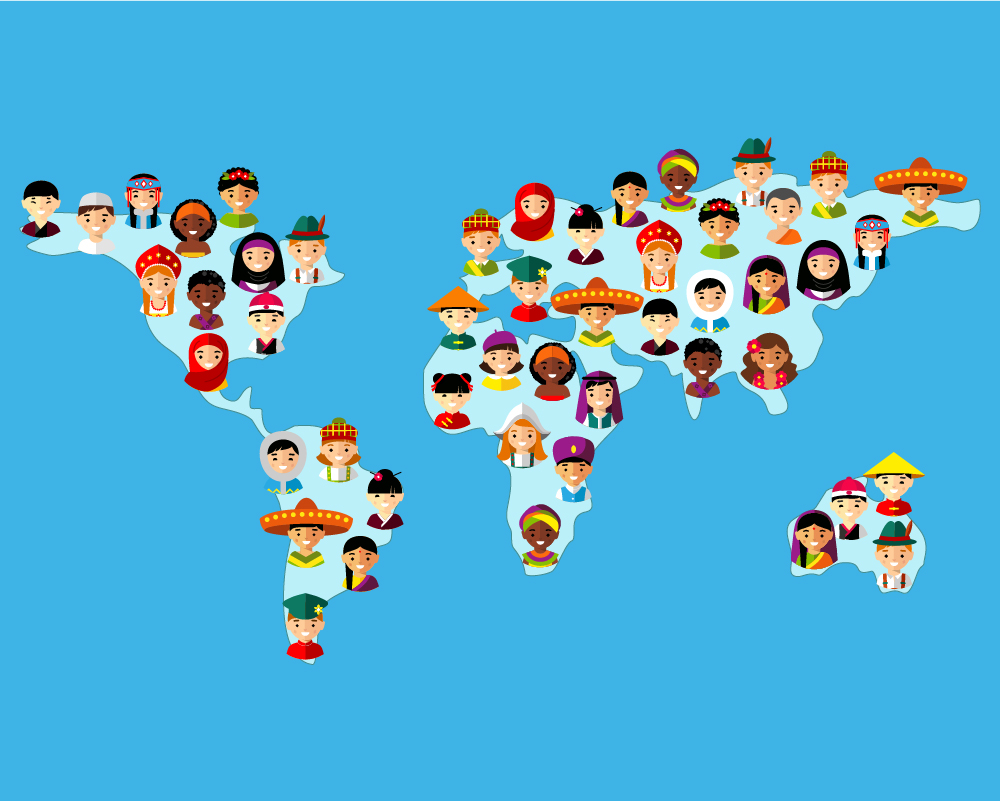At Pangea Global, we don’t just localize words. We also adapt the design aspects of a project so that the entire piece caters to a particular locale. Logos, symbols, icons and other imagery are localized by our native linguists and designers so that they resonate to the norms, values and beliefs in the desired culture.
Whether it is graphic design localization, app, game or desktop publishing, localization involves the consideration of colours and their meanings. Our team at Pangea Global localize with every culture in mind, ensuring not to offend or miscommunicate a message when it becomes another language.
So, in this article, just to give you an idea of our localization process, we’ve listed a selection of colours and what they mean in different cultures:
Information acquired from shutterstock.com.
Blue
North America & Europe: Trust, security, authority, soothing and peaceful.
Turkey, Greece, Iran, Afghanistan, and Albania: Associated with the eye-shaped amulets which protect against the evil eye.
Eastern cultures: Immortality
Ukraine: Good health
Hinduism: Related to the Hindu god Krishna, who embodies love and divine joy.
Green
Western cultures: Luck, nature, freshness, spring, environmental awareness, wealth, inexperience, and jealousy.
Ireland: The country’s emblematic colour
Indonesia: A forbidden colour
Mexico: National colour representing independence.
Middle East: The traditional colour of Islam and represents fertility, luck, and wealth.
Eastern cultures: Youth, fertility, and new life, but it can also mean infidelity.
Red
Western cultures: Excitement, energy, passion, action, love, and danger.
Russia: Related to communism and revolution.
Asian cultures: Good luck, joy, prosperity, celebration, happiness, and a long life.
India: Purity, sensuality, and spirituality.
Africa (some countries): Death
Egypt: A lucky charm
Iran: Good fortune and courage
Yellow
Western cultures: Happiness, cheeriness, optimism, warmth, joy, and hope. But also caution and cowardice.
Germany: Envy
Egypt: Happiness and good fortune
Orange
Western cultures: Autumn, harvest, warmth, and visibility
Hinduism: Auspicious and sacred
Netherlands: Colour of the Dutch Royal family
Colombia: Sexuality and fertility
Eastern cultures: Love, happiness, humility, and good health
Purple
Globally: Royalty, wealth, spirituality, and nobility
Japan: Piety and faith
Catholicism: Penitence
Brazil and Thailand: Mourning
White
Western cultures: Purity, elegance, peace, and cleanliness
China, Korea, and other Asian countries: Death, mourning, and bad luck
Peru: Angels, good health, and time.
Black
Globally: Sophistication, formality, death, evil, mourning, magic, fierceness, illness, bad luck, and mystery.
Middle East: Rebirth and mourning
Africa: Age, maturity, and masculinity
As you can see, each colour can represent something totally contrasting in different cultures, countries and religions. It’s therefore up to us to make sure that your project is localized accurately for any locale. Thankfully, with our qualified and professional team, you can count on Pangea Global to do just that!
